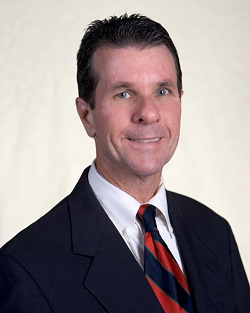 I am often asked to speak to non-lawyers who work for lenders about the loan documentation process but never about underwriting or loan commitments. But the application to underwriting-to commitment to loan documentation to closing phases is closely linked.
I am often asked to speak to non-lawyers who work for lenders about the loan documentation process but never about underwriting or loan commitments. But the application to underwriting-to commitment to loan documentation to closing phases is closely linked.
And, it is more than simply one long hyphenated series of words.
It's making the deal.
Occasionally, loan originators will contact me with legal issues relating to a loan before they issue a loan application. The smart among them want to ferret out what could become an underwriting issue and they want to have some level of confidence that an issue that might be a problem is not deal killer.
Identifying and failure to identify deal-killing issues are a large problem facing credit unions especially for loans intending to be participations.
While originators sometimes fearing their own underwriters may call legal counsel in advance, too often there are no communications between underwriters and lender's counsel. Our best engagements and best loan closings involve underwriter-lawyer communications. It is bottom line efficiency for any loan closing. Moreover, it is the bottom line to better portfolios or participations.
Too often, in credit union lending, the problem is that underwriters and others do not know what they do not know. Doc orders become shorthand for taking the basic deal points and inputting them into form documentation that spits out from a document system or document service. In other sectors of the lending industry, loan documentation is inextricably related to underwriting.
Some clients provide me underwriting memoranda. I may gain insight from what is in the underwriting memorandum. Sometimes the provision of a commitment is further amplified by what is in the underwriting memorandum and this will drive provisions of the loan documents, of preparation of special documents.
It is particularly important for lawyers to be involved in communicating with underwriters prior to commitment on certain issues. Some of these issues include does the lawyer have any insight as to a legal hurdle that may preclude the loan from closing and with special escrows, are there special issues, and if so, how should they be handled. Other issues can involve parcel releases, properties unleased, letter of credit issues, ground lease transactions, and single tenant properties.
Good outside counsel may frequently provide input how underwriting problems can be resolved, so that lenders may help make the loan. In some instances, I may be drawn into pre-commitment review of matters such as special title matters or ground lease matters. In these instances, I am able to make specific recommendations that make it possible for a particular loan to be approved or documented correctly.
The hyphenated loan closing stanza at the start of this article linked the words commitment and loan documentation. The commitment will define loan documents. No one understands why battles may arise post-commitment, but usually it's because certain problems and solutions were not clearly covered at the commitment stage.
Going back to the premise that your lawyer can be a deal maker rather than a deal killer requires a closer look at a commitment from a borrower's point of view. If not negotiated carefully, the borrower will lose right to negotiate certain issues in loan documents. The commitment fee has been paid. The borrower cannot negotiate, and later claim that it did not understand matters. Borrowers will live and die by the commitment.
Even when borrowers do not have legal counsel, lenders may consider use of outside legal counsel at the commitment stage. Based upon the way certain issues are framed in the commitment, we might tighten some of the issues, and better protect the lender.
Gordon L. Gerson is managing principal of Gerson Law Firm in San Diego. He can be reached at (858) 869-8686 or [email protected].
© Touchpoint Markets, All Rights Reserved. Request academic re-use from www.copyright.com. All other uses, submit a request to [email protected]. For more inforrmation visit Asset & Logo Licensing.






